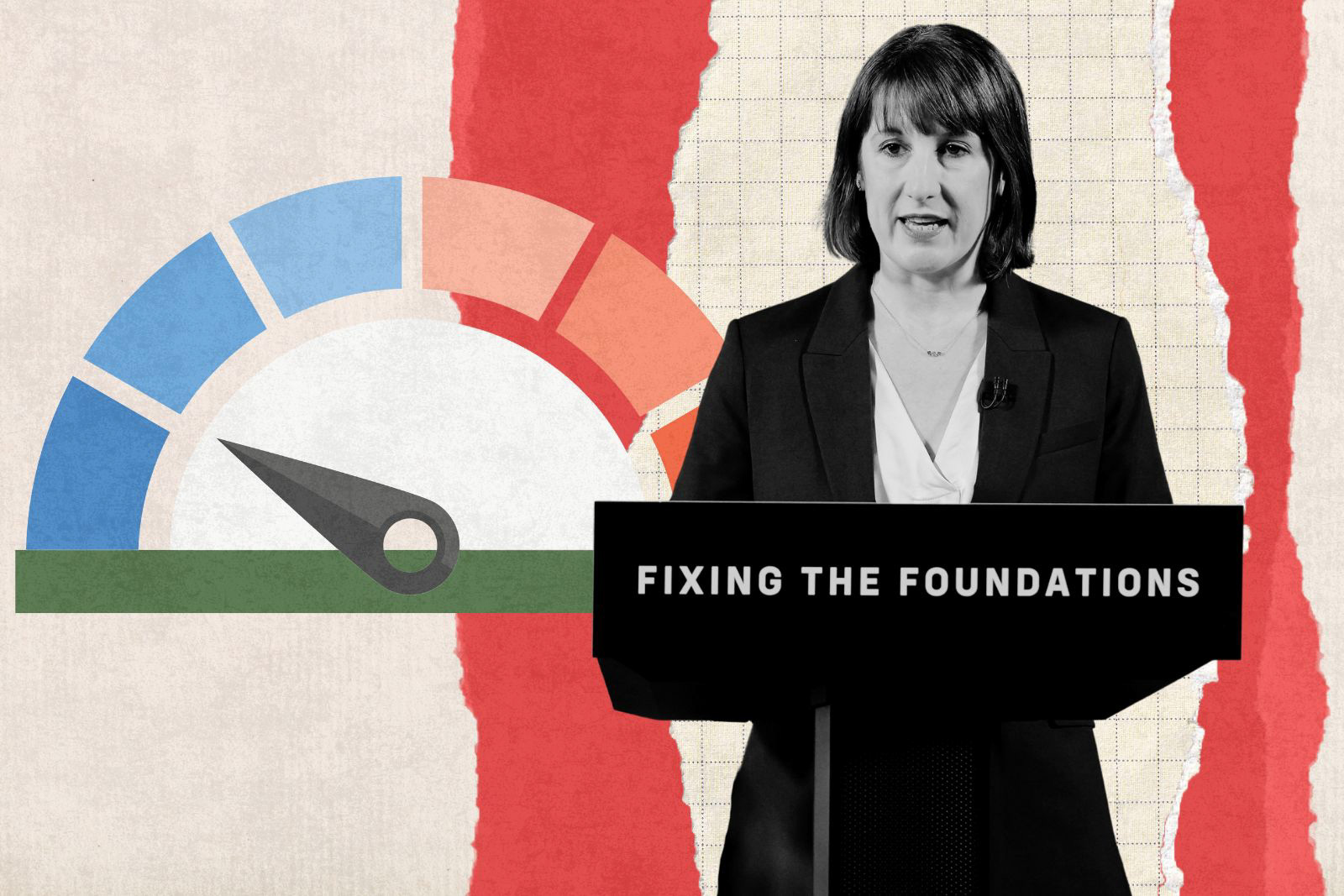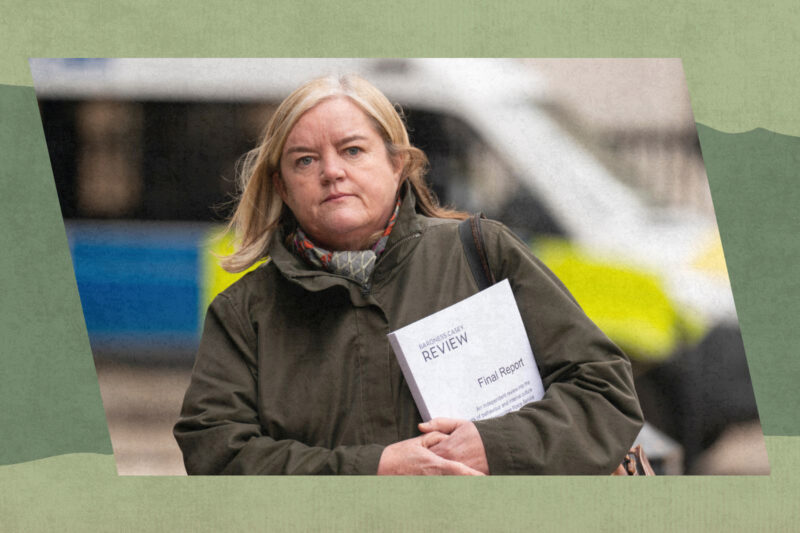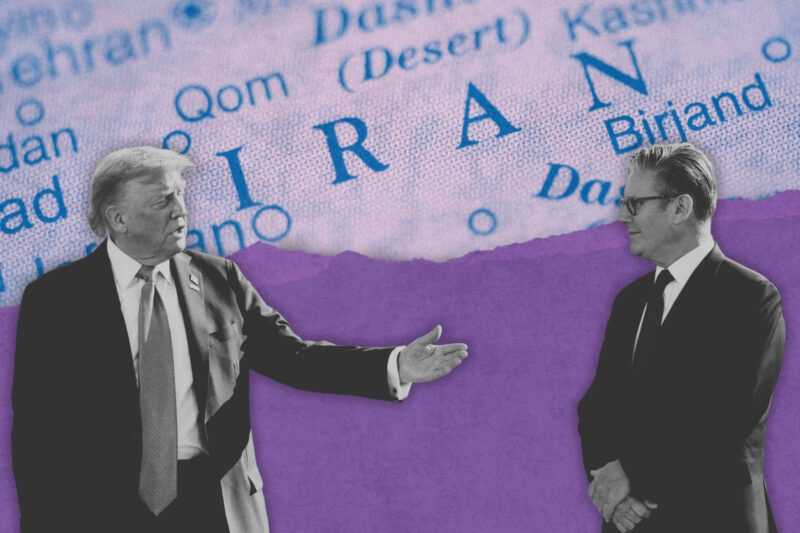We’ve not heard the last of Labour’s anti-austerity rebels
Dozens of Keir Starmer’s MPs abstained on a vote to scrap winter fuel payments for pensioners, exposing a rift in the party
–

Britain’s self-proclaimed “iron chancellor” Rachel Reeves has stuck to her guns, delivering a £1.4bn cut to pensioners in England and Wales.
After claiming there was a £22bn black hole in the UK’s finances, Reeves chose to scrap winter fuel payments for the majority of British pensioners, clawing back 6% of that gap but in doing so causing significant friction within her party — and giving us an insight into what the next few years of a Labour government could look like.
On the face of it, the government’s sell should make sense to most Labour MPs. Why would you give rich pensioners £200 or £300 a year for winter fuel allowance if they do not need it? The argument is that the policy should be targeted at those who need it most and that, as winter fuel payments have not increased since they were introduced 24 years ago, resulting in the equivalent of a 45% real terms cut, they are becoming less and less fit for purpose.
But the Labour MPs I have spoken to in the last couple of weeks have raised a number of concerns, including fears that it will be the most vulnerable who lose out. A recent study found that five out of six pensioners below the poverty line will lose their winter fuel payments. One MP told me they were worried that those who are still eligible for winter fuel payments may struggle to navigate the 243-question form needed to apply, while Richard Burgon — the independent MP for Leeds East who lost the Labour whip after voting to scrap the two-child benefit cap — told me he believed some pensioners would die.
Most of the dissenting Labour MPs I have spoken to say pensioners should not face the consequences of what appears to be the start of Labour-led austerity.
Aware of the concern, Reeves spoke to Labour MPs on the eve of Tuesday’s vote to reassure them. At a private meeting, some have told me, she said she knew the removal of the universal payment was a “difficult decision” and claimed she was “not immune” to the arguments that her colleagues had made against it — but remained insistent hers was the only viable course of action given the state of the country’s finances and even warned there were more difficult decisions to come. Her argument, I am told, was that this was a “once in a lifetime opportunity to reset politics in our country”.
Treasury sources tell me that they believe restoring the country’s finances will reassure markets and increase confidence in Labour’s ability to manage the economy. There are some in Westminster who believe that, given the last time the party was in power there was a global financial crash, the party needs to earn the City’s trust that it can manage the economy. This policy therefore has become a symbol of a government keen to look tough and show that it is willing to take difficult decisions.
It is also an indication of where power currently lies in Westminster. While Keir Starmer is the architect of Labour’s strategy and vision, he is happy to delegate the economic decisions to the Treasury. Often in Westminster, power and influence gravitates towards the chancellor and this government appears to be no different. Where Starmer appears to emphasise fiscal responsibility, it is left to his chancellor to implement his vision with relative freedom.
The problem is, in pursuit of “resetting politics” and balancing the country’s finances, the government runs the risk of losing support from a large portion of its MPs. At the most recent vote, only one Labour MP, Jon Trickett, voted against, but 53 abstained.
I spoke to several in the latter camp, a number of whom had privately been telling me for days that their inboxes were full of constituents complaining and that they hated the policy. They told me they had been warned they would lose the Labour whip if they dared vote against the government. “Losing the whip makes it really hard to work in Westminster,” one told me. “You lose all support and help from the party and it’s hard to do the job.” Trickett himself appears not yet to have had the whip withdrawn and although these strongarm tactics may have worked on this occasion, they could become less effective over time.
Either way, limiting the potential rebellion was fundamentally a test of the new government’s authority. A coalition of voices, ranging from left-wing Labour MPs all the way to Reform UK MPs, wanted the government to U-turn. But the government may well have felt that changing course at this stage would have left it seeming vulnerable to external pressure, opening the door to five years of questions about its authority despite its huge majority. This vote was a victory for government whips but it may not be a permanent one — and, with warnings of further difficult policies to come, they may simply have delayed an angry rebellion until a later date.
Shehab Khan is an award-winning presenter and political correspondent for ITV News.
 Newsletter
Newsletter












